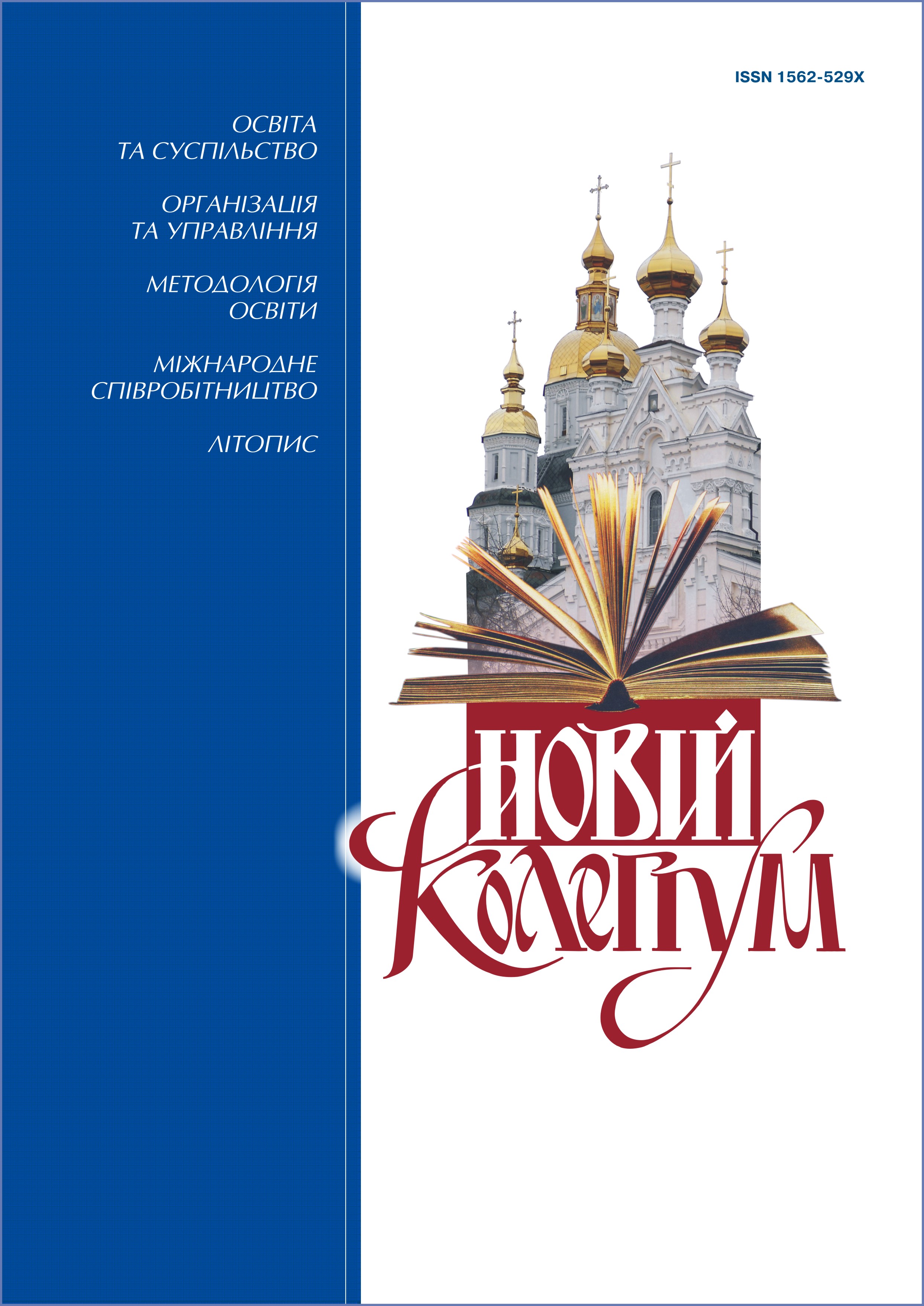PLACE OF PHILOSOPHY IN UNIVERSITY SYSTEM OF FUTURE SPECIALISTS’ TRAINING
DOI:
https://doi.org/10.30837/nc.2020.1.03Keywords:
philosophy, education, specialist, professional competence, university, outlook, science.Abstract
The article deals with the problem of determining of the place of philosophy in university system of future specialists’ training. The role of philosophy as a system-forming element of university education is outlined. Teaching philosophy is equated with high education and offered as a background.
Classic university model of education involves the study of philosophy as a leading discipline forming an overall world outlook of future specialist, an ability to problematization, to make definitions, to formulate, organize and present thoughts etc.
Gradual divergence of the vectors of philosophy and education throughout European history led in the 20th — 21st centuries to the crisis of university education, the destruction of classical university model and its transformation into a polytechnic high school is emphasized in the article. The direct consequence of this process is a decline of quality and content of professional competence of a future specialist. Mechanistic scientific knowledge, utilitarian in nature opposed to universal liberal classical education, cannot fulfill the ultimate goal of a high education: formation of students’ ability to navigate scientific theories and moral and practical competence in the application of knowledge.
in the field of research work the fundamental principle of the existence of philosophy means the freedom of public discussion of scientific truths. Freedom of mind is an integral part of this process. Philosophy should occupy a leading place in a system of scientific knowledge and university as a community of scientists — treasurers of different branches of science.
The crucial role of philosophy in the process of university system of future specialists’ training is emphasized in the article. Philosophy in high education should have an integrating function, with the help of philosophy the competence of future professionals should be able to perceive an individual knowledge shared by their individual sciences as a coherent whole.
The ultimate goal of the study of individual scientific disciplines should not be a science, but formation of personal and professional competence.
References
Кант И. Спор факультетов. 1798 // Кант Иммануил. Сочинения в шести томах. Москва : Мысль, 1966. т. 6. с. 311–348.
Карлюк П. Чи потрібна нам філософія? // Режим доступу: http:// www.volynnews.com/blogs/ukrayintsiam-brakuye-filosofiyi-rozumu-/chy-potribna-nam-filosofiia/вільний
Ньюмен Дж. Г. Идея университета. Минск : БГУ, 2006. 208 с.
Ридингс Б. Университет в руинах. Москва, 2010. 304 с.
Руденко О.В. Про необхідність та доцільність вивчення філософії у вищий школі // Режим доступу: http://www.philsci.univ.kiev.ua/biblio/Rudenko-pro.htm/вільний
Сидоров Н. Р. Философия образования. Введение. Санкт Петербург : Питер, 2007. 304 с.
Тур М. Г. Роль і місце філософії в освіті та науці // Вісник гуманітарного наук. товариства: наук. праці. черкаси, 2014. Вип. 14. с. 68–77.
Юркевич П. Вибране. київ : абрис, 1993. 416 с.
Ясперс К. духовная ситуация времени // Ясперс карл. смысл и назначение истории. Москва : Республика, 1999. с. 288–420.

